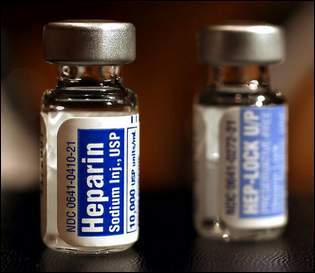Diabetes And Blood Thinners: Because diabetes tends to damage blood vessels there may likely come a time when your primary care physician will discuss blood-thinning options with you.
The Role of Blood Thinners
When a doctor suggests blood thinners it is primarily due to the potential for clotting within your system. If not addressed clots can cause a stroke or heart attack. There are both risks and rewards in following through with blood thinners, but the use of these drugs requires proper management of blood pressure (hypertension). Without control the blood thinners could create significant potential for internal and external bleeding that is hard to stop.
Types of Blood Thinners
There may be several options for patients, however one of the least expensive may be a low dose of aspirin. While many have moved toward ibuprofen, acetaminophen or naproxen for management of pain and inflammation the use of low dose aspirin can provide a relatively safe method to thin the blood and avoid clotting issues.
Another option for many patients is clopidogrel (Plavix). This drug works to prevent blood platelets from sticking together. When they do stick it can result in clotting.
In clinical settings the use of Heparin may be used as an anti-coagulant that allows the body’s normal function to aid in the breakdown of any existing clots. This may be done in surgical settings to assist in post-surgical care.
The blood thinner Warfarin has been subjected to greater scrutiny because it has shown a great ability to prevent certain kinds of strokes by breaking up certain kinds of blood clots. There is long-term evidence to suggest the use of this drug may actually lead to a different type of stroke later in life along with a heightened potential for hemorrhage.
Natural Aids in Thinning Blood
This section is designed to help you either use these foods to your advantage in aiding blood thinning or avoiding too many of them if you are already on medically prescribed blood thinners. You see, excessive blood thinning can cause bleeding in other areas of your body including the brain.
Some herbs and spices that contain salicylates (a natural blood thinner) include cayenne pepper, cinnamon, curry powder, dill, ginger, licorice, oregano, paprika, peppermint, thyme and turmeric.
Meanwhile there are fruits that can aid in blood thinning. These include blueberries, cherries, cranberries, grapes, oranges, prunes, raisins, strawberries and tangerines.
There are several fish species that can aid in anti-clotting objectives. They include albacore tuna, anchovies, herring, lake trout, mackerel, and salmon. The prevalent reason for this is high levels of oega-3 fatty acids.
While the above is not a complete list there are other foods including olive oil, garlic and onions that can contribute to blood thinning objectives.
Australian research in 2004 found that individuals who drank a cup of tomato juice once a day for three weeks saw a 27% reduction in the “stickiness of platelets”.
Am I getting too much blood thinner?
Symptoms of Blood Thinners:
- Abdominal or stomach pain or swelling
- Back pain or backaches
- Black, tarry or bloody stools
- Bleeding from your gums when brushing your teeth
- Bleeding in eye
- Blood in your urine
- Blood in vomit or vomit that looks like coffee grounds
- Blurred vision
- Chest pain
- Confusion
- Constipation
- Coughing up blood
- Diarrhea (sudden and severe)
- Dizziness or fainting
- Headache (continuing or severe)
- Joint pain, stiffness, or swelling
- Loss of appetite
- Nausea and vomiting (severe)
- Nervousness
- Nosebleeds
- Numbness or tingling of hands, feet, or face
- Paralysis
- Pinpoint red spots on skin
- Shortness of breath
- Unusual bleeding or bruising
- Unusually heavy bleeding or oozing from cuts or wounds
- Unusually heavy or unexpected menstrual bleeding
- Weakness (sudden)
Always discuss any concern with your primary care physician.
